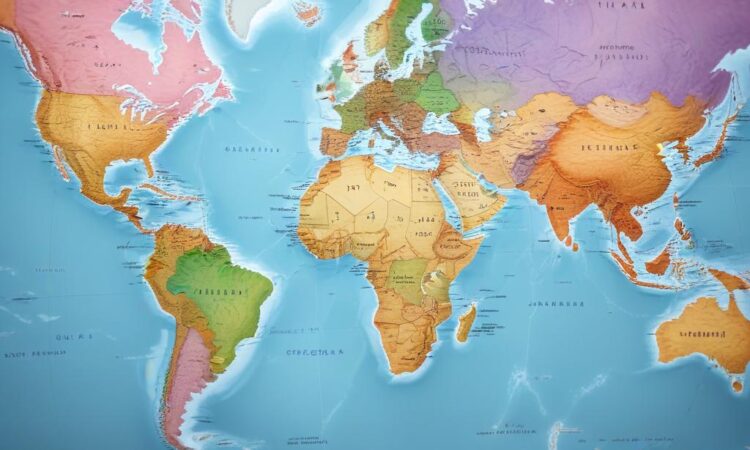Geopolitical Risks: The Impact on Businesses
In today’s interconnected world, businesses operate within a complex and ever-changing geopolitical landscape. Global conflicts, trade tensions, and political instability can significantly impact business operations, supply chains, and financial performance. Understanding these risks and their potential consequences is crucial for businesses to navigate the challenges and opportunities presented by the global environment.
Global Conflicts
Armed conflicts and military interventions can disrupt trade routes, damage infrastructure, and create uncertainty in the business environment. For instance, the ongoing conflict in Ukraine has had a profound impact on global energy markets, supply chains, and commodity prices. Businesses operating in conflict zones or those with significant exposure to affected regions face substantial risks to their operations and investments.
Impact on Businesses
- Disruption of Supply Chains: Conflicts can disrupt transportation routes, leading to delays, shortages, and increased costs for raw materials and finished goods.
- Damage to Infrastructure: Infrastructure such as ports, airports, and factories can be damaged or destroyed during conflicts, hindering business operations.
- Political Instability: Conflicts often contribute to political instability, creating an environment of uncertainty and risk for businesses.
- Economic Sanctions: Countries involved in conflicts may face economic sanctions, which can limit business activities and access to markets.
Trade Tensions
Trade disputes, tariffs, and protectionist policies can create barriers to international trade and increase costs for businesses. The US-China trade war, for example, has led to significant uncertainty and volatility in global markets, impacting businesses operating in both countries.
Impact on Businesses
- Increased Costs: Tariffs and other trade barriers can raise the cost of imported goods, reducing profit margins and impacting consumer prices.
- Supply Chain Disruptions: Trade tensions can lead to disruptions in global supply chains, forcing businesses to seek alternative suppliers or relocate production.
- Market Access Restrictions: Protectionist policies can limit market access for businesses, reducing export opportunities and hindering growth.
- Investment Uncertainty: Trade tensions can create uncertainty for businesses considering foreign investments, discouraging investment and economic growth.
Political Instability
Political instability, including coups, protests, and regime changes, can create significant risks for businesses. These events can disrupt economic activity, undermine the rule of law, and increase the risk of corruption and violence.
Impact on Businesses
- Economic Uncertainty: Political instability can create an environment of uncertainty, discouraging investment and hindering economic growth.
- Operational Disruptions: Businesses may face disruptions to their operations, including factory closures, supply chain disruptions, and difficulties accessing essential services.
- Legal and Regulatory Risks: Political instability can lead to changes in laws and regulations, creating legal and regulatory risks for businesses.
- Increased Risk of Corruption: Political instability often coincides with increased corruption, which can negatively impact businesses.
Mitigating Geopolitical Risks
Businesses can take various steps to mitigate geopolitical risks and protect their interests. These include:
- Diversification: Diversifying operations and supply chains across multiple locations can reduce exposure to risks in any one region.
- Risk Assessment: Regularly assessing geopolitical risks and developing contingency plans can help businesses prepare for potential challenges.
- Political Monitoring: Staying informed about political developments and potential risks through monitoring and analysis can help businesses make informed decisions.
- Engagement: Engaging with policymakers and government officials can help businesses influence policy decisions and mitigate risks.
- Insurance: Obtaining insurance coverage for political risks can protect businesses from financial losses due to unforeseen events.
Conclusion
Geopolitical risks are an inherent part of the global business environment. By understanding these risks and taking proactive steps to mitigate them, businesses can navigate the challenges and seize the opportunities presented by a dynamic and interconnected world. Vigilance, adaptability, and a strategic approach to risk management are essential for businesses to thrive in the face of geopolitical uncertainties.

